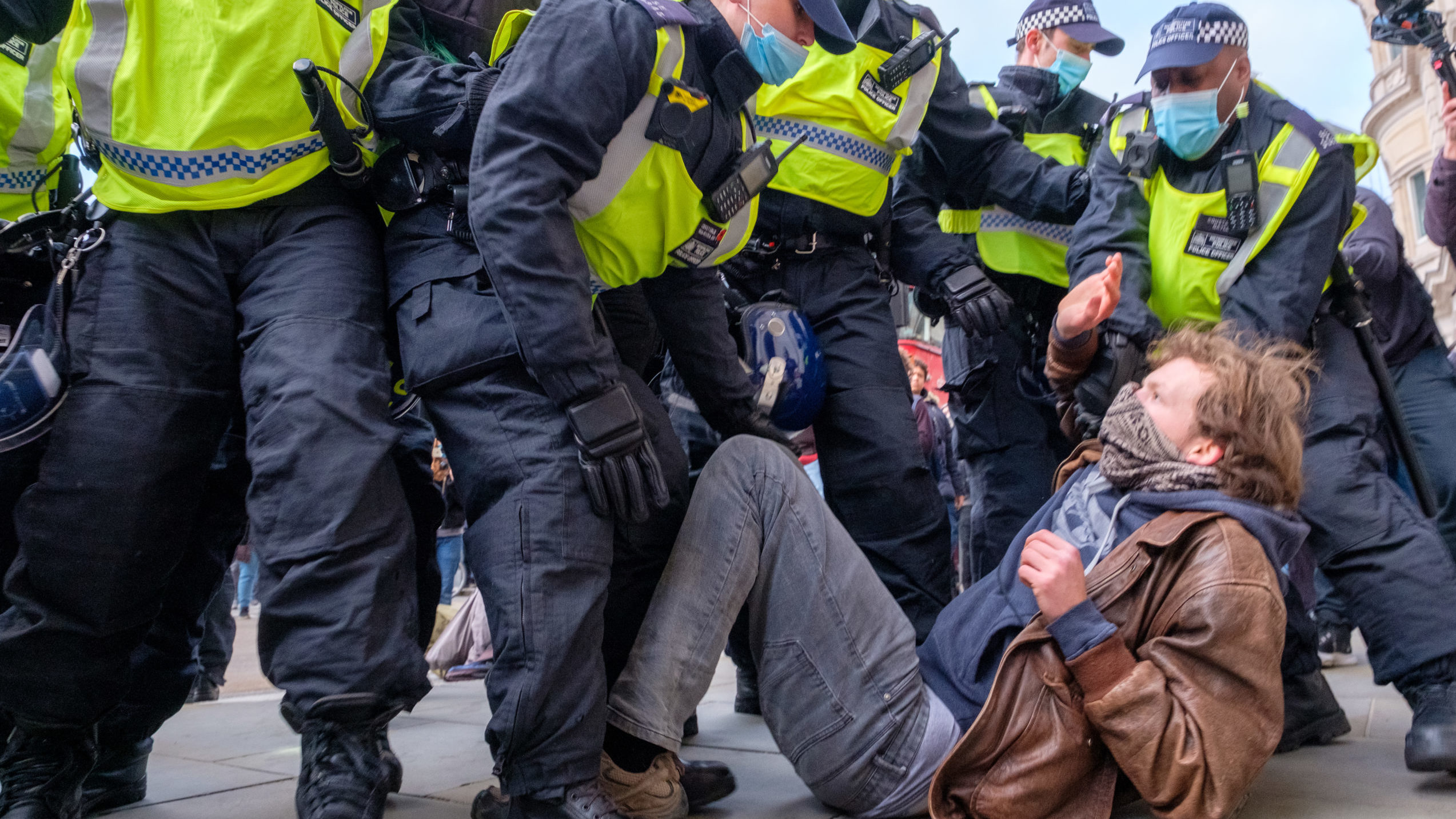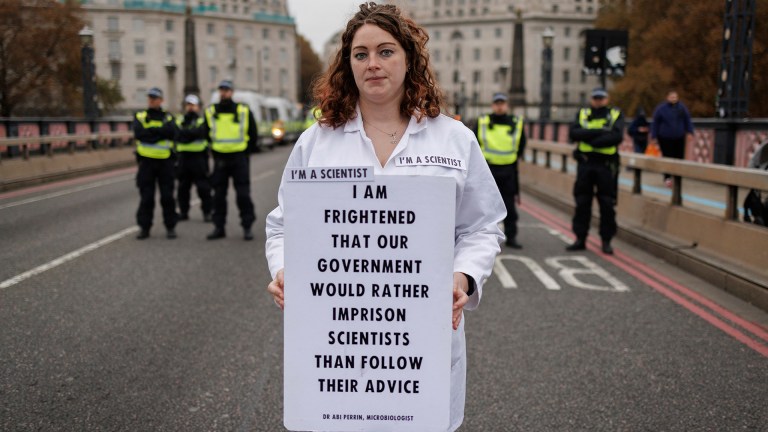Priti Patel’s plans to increase police powers through her Public Order Bill are not supported by the public, according to a new poll.
A survey carried out by human rights group Liberty has found seven in 10 people want the government to instead focus on the root causes of crime.
The new Public Order Bill will grant police greater stop and search powers, and creates new protest-related criminal offences – including making “locking on” a crime punishable by prison time.
Emmanuelle Andrews, policy and campaigns manager at Liberty, said the findings showed a government out of step with the public.
Andrews said: “It’s clear from these figures that Priti Patel is completely out of step with public opinion when it comes to dealing with problems like serious violence.”
“The new measures announced last week by the Home Secretary will serve only to widen existing divisions and put more people – particularly people of colour and children – at risk of police harassment and abuse of power.”










